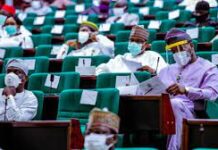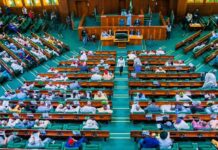. Africa’s confirmed cases top 3.75m
Professor of Virology, Oyewale Tomori, has advised the Federal Government and relevant health agencies to start collecting samples of inbound travellers on arrival at airports in order to quickly detect passengers infected with COVID-19.
Tomori, who is the Chairman, Expert Review Committee on COVID-19, stated this on Monday during an exclusive interview with The PUNCH.
He also knocked the Nigeria Centre for Disease Control and the Port Health Services for failing to enforce the 14-day self-isolation for inbound international travellers.
Daily Champion learnt that earlier many inbound travellers evade the mandatory Day 7 post-arrival COVID-19 tests while some passengers connive with officials of private laboratories to obtain fake COVID-19 test certificates to present to the government for retrieval of their passports.
Speaking with our correspondent on Monday, Tomori said the development was not surprising because Nigerians are law-breakers and the government has not been strict with enforcement.
He said, “Countries where they are loose over control are the ones having problem with Covid. Nigeria is number one when it comes to being loose with regulations and laws. We break laws and it is not surprising that this is happening.
“When I was in Ethiopia during the Ebola time, they let you in and every morning, somebody calls you and asks you, ‘Are you feeling fever?’ They do follow-ups and contact tracing but we abandon all of that in Nigeria.”
The virology professor said the “big people” in the country were the most culpable in the matter as they maneuver their ways through the entry protocols.
“The implication is that no one knows who has the disease and we are going to keep spreading it,” he noted.
Tomori also advised the government to work with the airlines to collect samples of inbound travellers on arrival to detect possible positive cases.
He said, “Our committee had advised that the samples be taken on arrival. The number of people you are going to monitor will depend on people who are positive. If 200 people come in, plus or minus, some will test negative but it is not like the disaster we are having now.
“If 200 people come in and you take their samples on arrival and 30 are positive, you are only focusing on the 30. Now, you have 200 coming in and you say come back seven days later which means you are monitoring all the 200 of them of which 150 may be negative. Sensible countries take samples at the point of entry. So, within a day of two, you know those who are positive.
“Some of the people coming in with negative results are all fake. So, your best bet to know whether they are positive or negative is to re-test on arrival.”
.Africa’s confirmed COVID-19 cases top 3.75m
The number of confirmed COVID-19 cases on the African continent reached 3,750,266 as of Monday, the Africa Centres for Disease Control and Prevention (Africa CDC) said.
According to the continental disease control and prevention agency’s Africa COVID-19 dashboard, the death toll related to the pandemic stood at 98,480 as of Monday afternoon.
A total of 2,290,070 people infected with COVID-19 have recovered across the continent so far, the agency disclosed.
The Southern Africa region is the most affected area in the continent in terms of the number of confirmed positive cases, followed by the Northern Africa region, according to the Africa CDC.
The most affected African countries in terms of the number of positive cases include South Africa, Morocco, Tunisia, Egypt, and Ethiopia, at 1,491,807, 478,474, 223,244, 173,813 and 147,092, respectively, the agency said.
South Africa has also reported the highest COVID-19-inflicted deaths in Africa, at 47,899, according to the Africa CDC.
The AU had recently emphasised that the ongoing COVID-19 pandemic “is not just a severe health emergency, it is also a grave economic and social crisis.”























